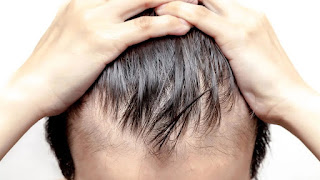Why Do You Need A Dermatologist For Hair Loss?
The dermatologist's office is frequently visited by patients seeking treatment for hair loss. The gradual thinning of our hair is a natural process that occurs as we age. It is normal to shed anywhere from fifty to one hundred and fifty hairs daily. However, if you observe clumps of hair falling out, circular regions of thinning hair, or if you are simply concerned about the amount of hair you lose, it is time to schedule an appointment with our hair and skin specialist.
Many things can cause our hair to fall out. A significant life event or stressor is one of the most typical triggers for someone to become depressed. Telogen effluvium is the medical term for this form of hair loss, and it typically takes place about 90 days after the "incident." After having a baby, undergoing major surgery with general anesthesia, the death of a loved one, or simply experiencing an event such as becoming unwell or switching professions can be common triggers for postpartum depression.
This hair loss is characterized by overall thinning all over the scalp rather than clumps of hair loss occurring in specific areas of the scalp. This problem usually gets better on its own within a year, but there are some things you can do to speed up the process, and your hair and skin specialist will be able to walk you through your choices.
Telogen Effluvium
Telogen effluvium is a disorder that causes diffuse hair loss and typically manifests itself approximately three months after a significant life event such as getting married, giving birth to a child, undergoing major surgery, or becoming very ill. Some of these life events include: Even nutrition or emotional stress can promote telogen effluvium. In most cases, individuals will observe a generalized thinning of hair throughout the scalp. The good news is that in most cases, it clears up in about six months with the spontaneous development of new hair. There is no requirement for medical attention or intervention at this time.
Androgenetic
Androgenetic hair loss is a different type of hair loss that affects men and is characterized by a thinning of the hair on top of the scalp or toward the forehead. In women, this condition manifests as an expansion of the section that runs down the middle of their head or a considerable loss of hair on the crown of the scalp. A significant portion of this illness can be attributed to inherited causes. We are fortunate to have access to a wide variety of therapeutic choices, such as pills that can be taken orally, injections, and topical foams.
Auto-immune diseases can cause hair loss. This condition, also known as alopecia areata, occurs when an individual's immune system destroys the hair follicles. This frequently results in coin-shaped regions of complete or nearly complete baldness on the affected area. Treatments administered in-office, such as injections and drugs administered systemically or topically, tend to be effective in treating alopecia areata.
If you have noticed that you are shedding more hair than usual, please contact our clinic as soon as possible so that we may schedule an appointment for you with one of our hair and skin specialists.



%20(1).png)
Comments
Post a Comment